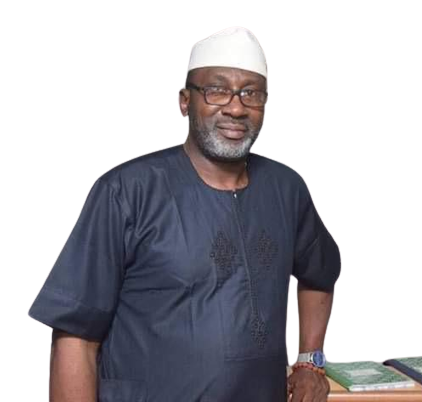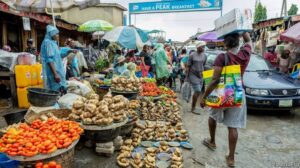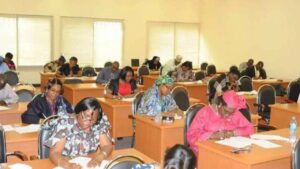National Social Register and the Approval of N3 billion – Abayomi Odunowo.
The allocation of 3 billion Naira to verify a social register in Nigeria may seem excessive at first glance, but a closer examination reveals the complexities and scope of the task at hand. With a population of over 200 million people spread across 774 Local Government Areas and 36 States plus Abuja, creating a comprehensive database of the poor and vulnerable households is a massive undertaking.
Furthermore, the existence of 93.46 million registered voters, 98,708,656 enrolled NIN, and 58.7 million BVN adds layers of complexity to the process of identifying and verifying those in need of social assistance. The Federal Government’s National Social Safety Nets Programme, established in 2016, underscores the commitment to addressing poverty and prioritizing social protection.
The collaboration with the World Bank and the securing of a $500 million facility for the National Social Safety Nets Project (NASSP) demonstrates the recognition of the monumental task at hand and the need for substantial resources. The successful implementation of a comprehensive social register is crucial for the effective targeting and delivery of social assistance to those who need it most.
while the allocation of 3 billion Naira may seem extravagant at first, it is a necessary investment in the development and implementation of a robust social register that will ultimately benefit the poorest and most vulnerable in Nigerian society. It is essential to view this expenditure not as wastefulness, but as a vital step towards creating a more inclusive and equitable society.
The issue of ensuring the direct payment of funds into the accounts of beneficiaries is of utmost importance for the government. With the authentication materials such as the National Identification Number (NIN), Bank Verification Number (BVN), and Voter’s cards, the government can accurately ascertain the true beneficiaries of these funds. These authentication materials are tied to each individual’s particular location within each state, their local government, and wards, as well as where they live. This ensures that the funds are directed to the rightful recipients and reduces the likelihood of ghost beneficiaries benefiting from the disbursement of cash.
By mandating that the funds are paid directly into the accounts of the beneficiaries, the government can effectively eradicate or minimize the existence of ghost beneficiaries. This process also enhances transparency and accountability in the disbursement of funds, as it leaves an auditable trail for the government to track and verify the allocation of funds to the intended beneficiaries.
Thus, ensuring that funds are paid directly into the accounts of beneficiaries, leveraging their authentication materials, is a critical measure to prevent fraud and misappropriation of public funds. It also promotes efficient and targeted distribution of resources, ultimately contributing to the economic well-being of the citizens.
The National Social Safety Nets Coordinating Office (NASSCO) in Nigeria had two major components, aimed at strengthening and establishing social protection implementation in the country. The first component focused on laying the foundation for social protection by establishing NASSCO and the National Cash Transfer Office (NCTO). The second component involved targeted cash transfers to the poor and vulnerable.
However, the effectiveness conditions set by the World Bank caused a delay in the implementation of the project from 2016 to 2018. These conditions included signing a memorandum of understanding with all states of the federation and establishing governance structures at the offices of ministries of establishment in all the federation states, as well as at the federal level.
Upon review of the existing structures and databases for raising the Social Register, it became clear that alignment with the National Identity Management System format was necessary. This required collaboration with various national offices, including INEC, Immigration, tax authorities, the banking community, the bureau of statistics, and the National Population Commission.
The establishment of a single National Social Register and the alignment of national databases with the National Identity Management System format were crucial in meeting the World Bank’s effectiveness conditions and in effectively implementing the National Social Safety Nets Project.
The NASSCO played a pivotal role in overseeing the implementation of the project and in ensuring that the necessary foundations and structures were in place to support social protection initiatives in Nigeria.
The growth and expansion of the National Social Register from its initial 321,000 poor and vulnerable households in April 2018 to its current 12.8 million households across all 36 states and the FCT is a testament to the commitment and dedication of the government to tackle poverty and ensure social protection for the most vulnerable in the society.
The transition from analogue to digital data collection using the Kobo Collect Software and the procurement of devices and tablets has significantly accelerated the data collection process and ensured the quality of the information gathered. This has laid a strong foundation for the exponential growth of the social register, with the number of households increasing to 850,000 by December 2018 and then to 3 million by September 2019.
The establishment of State Operations Coordinating Units in each state and the recruitment of competitive lead civil servants have facilitated the expansion of the register to all states and the FCT. The recent inclusion of Lagos, Ebonyi, and Ogun states, as well as the ongoing efforts to expand to the remaining local governments, demonstrate the continuous commitment to reaching and assisting all those in need.
The ultimate goal of saturating the entire 774 local governments by October 2022 and expanding the register to 13 million households showcases the government’s ambitious yet achievable targets in its efforts to alleviate poverty and provide social protection for the most vulnerable in the society. The National Social Register represents a significant step towards ensuring a more equitable and inclusive society for all.
The establishment and implementation of the National Social Register in Nigeria has indeed been a remarkable achievement in addressing the needs of the country’s most vulnerable individuals. This comprehensive database, consisting of the information of over 50 million individuals with 138 indicators attributed to each, is unparalleled in its scope and depth. It provides valuable insight into the living conditions and socio-economic status of those registered, enabling targeted and effective support and assistance programs.
Furthermore, the creation of the Rapid Response Register in response to the Covid-19 pandemic showcased the agility and innovation of the National Social Safety Net Coordinating Office (NASSCO). By utilizing satellite imagery and big data, NASSCO was able to identify and reach out to the urban poor in a scientific and comprehensive manner, a pioneering effort in sub-Saharan Africa.
The focus on the urban poor, who often reside in marginalized and neglected communities, is a testament to the government’s commitment to leaving no one behind. This initiative not only acknowledges the critical role played by the urban poor in sustaining the country’s urban centers but also demonstrates a clear understanding of the specific challenges they face.
While the National Social Register is indeed a significant achievement, it is just one among many landmark efforts undertaken by the APC led FGN to address poverty and vulnerability in Nigeria. The commitment to thorough, data-driven targeting and the focus on the most marginalized communities deserve commendation and recognition. It is evident that the National Social Register is not just an achievement but a vital tool for inclusive and effective social intervention.
In today’s world, technology plays a crucial role in addressing societal issues, and one such example is the use of satellite imagery and big data to map urban areas and identify the poor and vulnerable. This is evident in the case of Nigeria, where the government has utilized these tools to create the National Social Register, which has proven to be an invaluable resource in targeting interventions and support for those in need.
By employing satellite imagery and big data, the government has been able to map urban areas and identify those who are living in poverty. This information has been pivotal in the creation of the Rapid Response Register, which has registered 6.8 million individuals and validated 3 million. When combined with the National Social Register, there are approximately 57 million individuals in the database. This is a significant achievement, as it represents a substantial portion of the estimated 90 million people living below the poverty line in Nigeria.
The National Living Standards Report released by the National Bureau of Statistics in 2020 also revealed that 40.2 percent of Nigerians are living below the poverty line. This translates to roughly 82 million people out of a total population of 200 million. Furthermore, the report highlighted that the COVID-19 pandemic and subsequent economic lockdown led to an additional 8 to 10 million people falling into poverty, particularly in urban areas.
Understanding the dynamics of poverty is crucial, and the government’s approach with the Rapid Response Register is commendable. This register specifically targets those who have been further impoverished as a result of recent incidents, providing specialized support for those in need. By focusing on the urban poor, the government is demonstrating a keen understanding of the unique challenges faced by this demographic.
The utilization of the National Social Register and Rapid Response Register has given the government a crucial database to plan and implement targeted interventions for the poor and vulnerable. With approximately 65 percent of the estimated poor in the database, the government now has the means to effectively support those in need, mitigate the impact of economic crises, and work towards lifting individuals out of poverty.
This targeted approach is a testament to the power of technology and big data in addressing social issues. By leveraging satellite imagery, big data, and innovative tools such as SMS Blast, the government has been able to identify and support millions of individuals in need. This data-driven approach is a model for other nations facing similar challenges, showcasing the potential for technology to drive positive change in society.
In conclusion, the use of satellite imagery and big data in mapping urban areas and identifying the poor and vulnerable has been instrumental in creating the National Social Register and Rapid Response Register in Nigeria. These databases have provided the government with crucial insights into the dynamics of poverty and have empowered them to implement targeted interventions and support for those in need. This is a shining example of the power of technology to address social issues and drive positive change.
Otunba Abdulfalil Abayomi Odunowo
National Chairman AATSG
17th January, 2024






